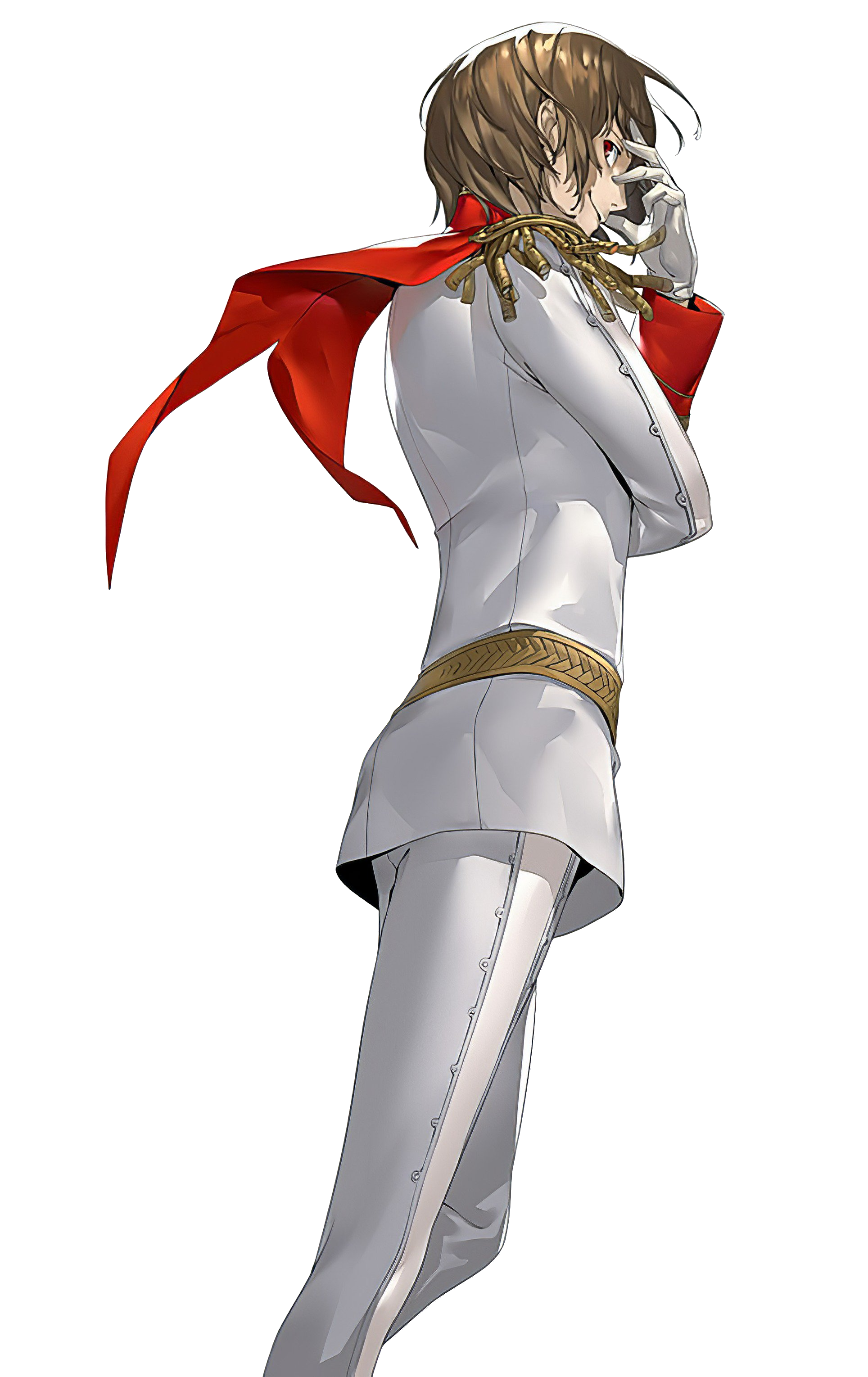

To Mitsuo Kubo, a character who also has psychological issues and No Social Skills.

And while both are noticeably frail girls for their age which is connected to their issues, Futaba's was a result of her lack of physical exercise due to being a shut-in, in contrast to Maki whose illness was what caused her to be shut out from the outside world. However, while Maki resented her mother, Futaba believed that her mother thought of her as a burden. They also had estranged relationships with mothers too preoccupied with their workload to spend time with their daughters. But Maki's world manifested from her desire to live a normal life, whereas Futaba's palace manifested from her own suicidal thoughts as a result of her own self-loathing.

To Maki Sonomura, another girl with deep-rooted psychological issues that caused them to manifest a supernatural world as a result of a device the DEVA system for Maki and the Metaverse App for Futaba.Even though they both charge into dangerous situations alone (Makoto in the Yakuza headquarters, and Tatsuya's One-Man Army campaign), Makoto does this out of her inferiority complex and ignorance, while Tatsuya has Seen It All and knows he can fight his way out of it.Both of them live in the shadow of their more successful sibling, but while Makoto is trying to mend her relationship with her sister who's pushing her away, Tatsuya and his brother have it the other way around.Makoto greatly idolizes her late father, but Tatsuya grew up thinking of his as a Dirty Cop and only found out he was framed in Eternal Punishment.Tatsuya on the other hand, while immensely popular, is thought to be a delinquent and avoids people out of childhood trauma. Makoto is isolated because she throws all her efforts in her studies and is viewed as a Teacher's Pet.Finally, both of them tend to charge alone in dangerous situations. In addition, both of them have an older sibling in the police they have a strained relationship with, and both their fathers were former police officers while their mothers are absent. Both of them are Badass Bikers and they use Nuclear magic. Both of them are Persona users who are loners among their peers despite being well-known. The differences between Eiko and Makoto's social lives serve to show how detached Makoto is to her fellow students, and Makoto even points out that Eiko has helped her gain insight into people who aren't like her. Eiko, however, is a Book Dumb girl who has a more active life out of school. Makoto's an intelligent and hard-working girl who's somewhat out of touch with her contemporaries. To Eiko, a girl she meets and befriends over the course of her Confidant.In terms of gameplay, both favor physical attacks instead of magic, but Kanji specializes more in brute force while Yusuke is more of a Critical Hit Class. Both also have issues with their father figure, with the difference being that Kanji's dad died when Kanji was young, leading Kanji to lack a male role model growing up, while Yusuke had an abusive adoptive father who serves as an Anti-Role Model to Yusuke. Like Kanji, his sexuality is ambiguous, but he isn't anywhere near as touchy about it. Yusuke, on the other hand, is openly and proudly an eccentric artist, and fears that by achieving greater fame, recognition, and acceptance he will be "selling out" and sacrificing his integrity as an artist. Kanji's conflict is his deep insecurity stemming from his traditionally-feminine hobbies and talents, as well as his possible homosexuality, and makes a concerted effort to hide his Unmanly Secret because he is afraid of people not accepting him or finding him strange. To Kanji Tatsumi, the Emperor social link and party member from the previous game.While both are introduced as quirky and classical artist, Madarame's greed and desire to steal others' work while not putting in the effort serves to highlight Yusuke's desire to do it for the art, as does his default choice of addressing a slump to resort to plagiarism while Yusuke instead doubles down to find an appropriate inspiration. Yusuke's foil is his mentor, Ichiryusai Madarame.


 0 kommentar(er)
0 kommentar(er)
